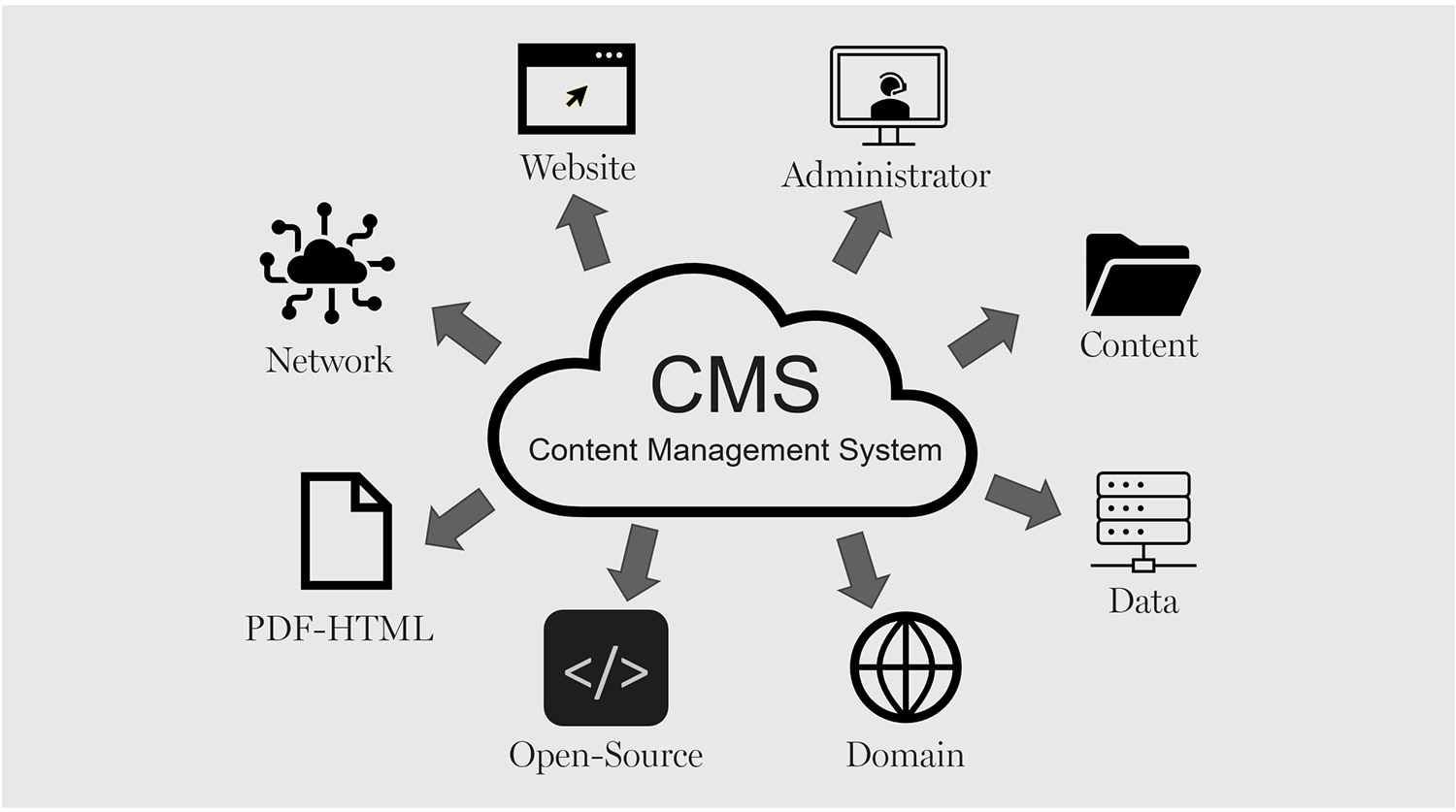In today’s fast-paced digital world, businesses need websites that are not only functional but also easy to update and manage. This is where Content Management Systems (CMS) play a crucial role. A CMS simplifies website creation, management, and maintenance, making it accessible to both developers and non-technical users.
Whether you’re building a personal blog, an e-commerce store, or a corporate website, understanding the role of CMS in modern web development can help you choose the right platform and make the most of your online presence.
What Is a Content Management System (CMS)?
A CMS is a software application that allows users to create, edit, manage, and publish website content without needing to write code. With a user-friendly interface and tools for customization, a CMS streamlines the web development process and empowers businesses to maintain their sites efficiently.
Popular CMS platforms include WordPress, Joomla, Drupal, and Shopify, each offering unique features tailored to different needs.
Why CMS Is Essential in Modern Web Development
1. Simplifies Website Management
With a CMS, you can easily add, edit, or delete content without relying on a developer. This is especially valuable for businesses that frequently update their sites with new blog posts, products, or announcements.
2. Speeds Up Development
CMS platforms come with pre-designed templates and plugins, significantly reducing the time needed to build a functional website. Developers can focus on customization and advanced features instead of building everything from scratch.
3. Enables Non-Technical Users
CMS platforms are designed to be intuitive and user-friendly, allowing non-technical users to manage their websites with ease. Features like drag-and-drop editors, visual dashboards, and content scheduling make site updates simple and efficient.
4. Supports Scalability
As your business grows, so can your website. A CMS allows you to add new pages, integrate additional features, or switch templates without starting over. This scalability ensures your website evolves alongside your needs.
5. Enhances Collaboration
Most CMS platforms allow multiple users to access and manage the website, each with different levels of permissions. This is ideal for teams working together on content creation, editing, and publishing.
6. Facilitates SEO Optimization
Many CMS platforms include built-in SEO tools or plugins that make it easier to optimize your website for search engines. Features like meta tags, XML sitemaps, and responsive design ensure your site ranks higher in search results.
Key Features of a Good CMS
1. Customizability
Look for a CMS that allows for both basic templates and advanced customization. This ensures you can tailor your website to your brand’s identity.
2. Plugin and Integration Support
A robust CMS should offer plugins and integrations for functionalities like e-commerce, SEO, analytics, and social media.
3. Responsive Design
Your CMS should ensure that your website is mobile-friendly, adapting seamlessly to different screen sizes.
4. Security Features
A good CMS includes tools for data protection, user authentication, and regular updates to guard against cyber threats.
5. Ease of Use
Choose a platform with an intuitive interface and clear documentation to minimize the learning curve.
Popular CMS Platforms
WordPress: The most widely used CMS, known for its flexibility, extensive plugin library, and community support.
Joomla: Offers advanced features for developers while remaining accessible to beginners.
Drupal: Ideal for complex websites requiring robust security and custom features.
Shopify: Designed specifically for e-commerce businesses, with built-in tools for managing online stores.
When to Use a CMS
A CMS is ideal for:
- Businesses that need to update their website regularly.
- Websites with multiple contributors or editors.
- Projects that require scalability and flexibility.
However, for highly specialized or unique requirements, a custom-built website without a CMS might be more suitable.
Getting Started with a CMS
If you’re considering a CMS for your website, start by evaluating your business needs. Identify the features you require, such as e-commerce functionality, blog capabilities, or multilingual support. Research platforms that align with these needs and test their interfaces to ensure they meet your expectations.
Empower Your Website with a CMS
A Content Management System simplifies the process of creating and managing a website, making it an essential tool for modern web development. By choosing the right CMS, you can save time, improve efficiency, and create a site that grows with your business.
Whether you’re launching your first website or upgrading an existing one, a CMS can provide the flexibility and functionality you need to succeed in today’s digital landscape.




0 Comments